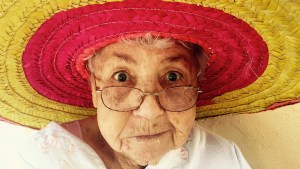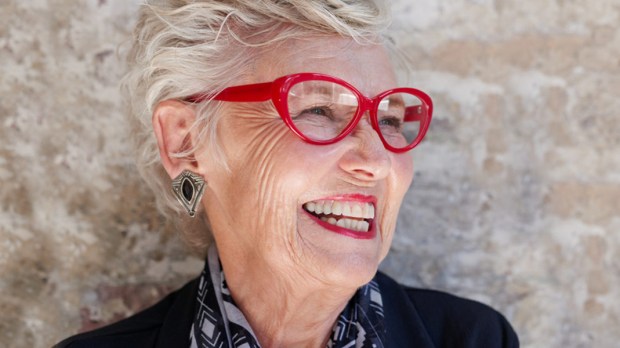What’s more impressive than Colette Bourlier, a then 91-year-old French woman, earning her PhD a few years ago? Maybe the fact that it took her 30 years to write her thesis, and she still managed to stick with it until the finish line. Bourlier began her thesis in 1986 — at age 61 — just after she retired from her career as a literacy teacher to immigrants. While “typical” French PhD candidates take three years to write their theses, Bourlier, who was given “high distinction” for her paper entitled “Immigrant workers in Besançon in the second half of the 20th century,” was obviously not typical.
“It took a bit of time to write because I took breaks,” Bourlier told The Telegraph.
Perhaps it’s in those “breaks” that we find so much to admire, since one would think a 61-year-old woman starting her thesis would be in a rush. But clearly, Bourlier’s heart and mind were on the process itself, enjoying the research and the learning, more than fretting about finishing — or even accomplishing.
Living in a culture — as we do — so focused on productivity and accomplishments, about learning and doing things to earn a salary, it’s easy to get caught up in a “it’s too late for that” mindset. But the last 30 years of Bourlier’s life are richer for having studied and learned, for having risked and enjoyed and endured. Bourlier is a role model for those even a third of her age.
As are other women who’ve stepped out “later in life” to learn something new, whether they used that new knowledge and “made something of it” or not. Julia Child was 36 when she enrolled at Le Cordon Bleu. “Grandma Moses” started painting at 76. Toni Morrison wrote her first novel at 39.
While each of these women “succeeded” later in life, none of them had guarantees or even aspirations it would happen. Each of them merely stepped out to learn or try something. Morrison had been an editor at Random House. Child was a former government agent living as an ex-pat in Paris with her husband. Grandma Moses needed a creative outlet after arthritis left her unable to embroider. Thank goodness all these women weren’t afraid to embark on a new journey. It shows that you can choose more than one path in life regardless of age.
No matter what stage of life we’re at — just starting in our careers, taking a break to spend more time at home with our kids, or integrating home life and work — to learn or experience a new thing helps to deepen our existence and benefits everyone around us.
Here a few things to consider:
You can teach an old(er) human new tricks
Common wisdom tells us: if you didn’t learn it as a kid, too late! Wrong, say the experts. Although many things are indeed learned — absorbed — more easily as children, adults can learn new tricks too, often in a better way.
Adults possess a vast life experience and wisdom that kids do not, and are therefore better able to grasp what a new skill or experience will involve, explains Ken Paller, a cognitive neuroscientist at Northwestern University. Adults can “think deeply about what they are doing wrong,” Paller says.
Though thinking too deeply might cause fear to rise, if we are able to harness that fear, that process of thoughtfulness can bring depth and passion to our endeavors.
Stay curious
Some of the best advice given to writers is “Find everything interesting.” And that’s really great life advice, too. The more we wonder and are interested, the more wonder-filled and interesting life becomes.
One of the best things about being an adult is the freedom to explore and learn what we want. So, use what interests you to your advantage. That travelogue on PBS sparked your interest in a new part of the country or world? Read up! Take a trip! Got a new obsession with Cuban food and wishing you had a great way to burn those yummy calories? Learn to merengue! Whenever something strikes your fancy, take the next step. You never know where it will lead.
Take advantage of opportunities
New things don’t always have to be “big” things like enrolling in law school or moving to Tokyo. For many of us, opportunities to try something new are right around the corner. Or closer: online!
Public libraries, park districts, recreation departments, community colleges, and local universities are itching to be explored and used, often for much less than you’d think. Here are some excellent online alternatives worth considering, as well:
Khan Academy
An online educational resource offering tools to parents and students with the goal of “you can learn anything.” They prove it with their amazing, free online classes in math, science, art history, and grammar (to name a few) for all kinds of curious students.
Babbel
The site offers a world of foreign language courses, created by linguists and language teachers, from the comfort of your own iPhone.
TED Talks
These inspirational and influential videos from experts in dozens of industries stand ready to teach us just about whatever we want to learn in less than 18 minutes.
And of course …
YouTube
Want to learn a few chords on that new ukulele? Done. Dance that merengue? Got it.
We live in the information age. Sometimes the incredible number of buttons and details threatens to swallow us, but the positive side is we have access to so much. That we can begin to follow our interests and dreams with just a few clicks is a privilege we’re foolish to pass up. And it’s never, ever too late.

Read more:
You are never too old to set another goal or to dream a new dream.

